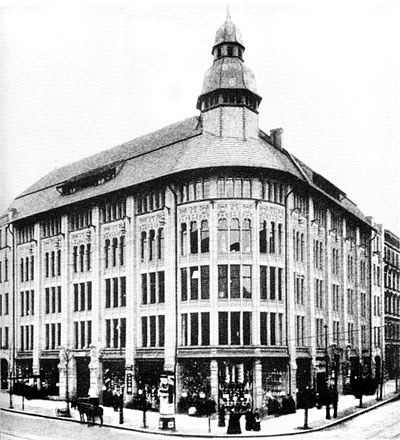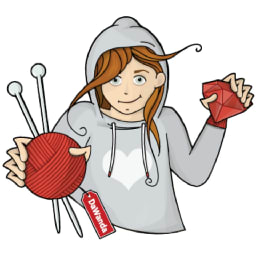Between August 2014 and July 2019 I applied for over 100 jobs.
Like most people, I find job hunting incredibly stressful. Yet, I am also extremely passionate about having a roof over my head, being able to purchase food and other necessities within a capitalist society.
Initially I was not very good at motivating myself to apply for jobs, so I decided to approach it more methodically and document my progress.
Using a simple spreadsheet (google sheets) I tracked the following fields:
Location, Company, URL, Role, Date Applied, 1st Interview...
Depending on whether an interview was active, rejected or awaiting a response, I color coded them green or red.
Below is a chart with the breakdown of the number of jobs I applied for over the years with some more info about the interview process itself.

(Source code for image can be found here)
After completing a 5 month web development bootcamp (Flatiron School) with no college degree to boot, I landed my first freelance contract in 2014 as a data analyst for DemocracyWorks in Brooklyn, New York.
In 2015, I relocated to the Netherlands and shortly after, Berlin, Germany. While moving to Europe was great for my mental health, it disrupted my momentum. I had to rebuild my networks and familiarize myself in a new environment, with different professional norms. I am an EU citizen, so I was really privileged, otherwise my lack of university education let alone a high school diploma would have been an obstacle to obtaining a visa. I was terrified of getting rejected, so I applied for a paltry four jobs in 2015, so it's not surprising that I was rejected from all four. I barely had any feedback loop to learn from. That time, however, was not wasted. I went traveling that year with my savings and also explored other programming languages and technologies. I also got more involved with different meet-ups and slack user groups, in particular Ruby User Group Berlin and WeAllJS
In 2016, again, I barely applied for any jobs (six in total), but I got lucky and was accepted to two of them. One was a short term contract and the other was a longer-term job at a wonderful company called DaWanda where I worked for 18 months until it went bankrupt.
In 2018 I got more bold and applied for 43 jobs, landed screening interviews with 14 of them, and a further 10 secondary/third interviews, before accepting a job at Curated Shopping Group. I also was flown in for interviews on two separate occasions, which I used as an opportunity to visit family. One was at GitHub's Headquarters in San Francisco, and the other interview at a company I am forbidden from naming, due to my Non-Disclosure Agreement (NDA) 🤷🏻♂️
In 2019, I was fired, two weeks before my probation period ended (usually 6 months in Germany) with two weeks notice so I had to find a job quickly.
In the following 2 months, I applied for another 41 jobs, which resulted in 16 interviews with 12 different companies, before I accepted an offer at a mobility sharing company called ShareNow, which was formed in a merger between Daimler's car2go and BMW's DriveNow.
I am currently working in this office now in the heart of Berlin with a gorgeous view. 
image courtesy of Wikimedia Commons
Some of my key findings.
A third of all companies got back to me at least for a screening interview. Some took days, others (especially larger companies) took months. On two occasions, I interviewed the same interviewer twice, in two different companies about a year apart!
With the exception of a few larger companies e.g. Babbel, Github and Thoughtbot, all the companies I interviewed made a decision in two interviews or less (not including a screening interview).
Most companies are quite disorganized. Some companies try to filter candidates out with difficult application processes, automated IQ tests and online challenges, while others have buzzword driven interviews. The best ones took the time to read my resume and get to know me as a person.
My shortest interview cycle was 5 days and my longest was 7 months!
I have applied for the same job multiple times and got further in the interview process the second time. In short, don't be afraid to apply for jobs you really want again and again! And remember, to have fun. It's mostly a crap shoot!
What advice do you have and how many jobs have you applied for?




Top comments (29)
"And remember, to have fun. It's mostly a crapshoot!"
Literally the only way to make it out sane & alive!
I was once passed over for a job and tried again 1.5 years later where they picked me.
They were very happy I applied again and sped the interview process to hire me after 2 interviews.
The first time, when I failed, I was told that I would not be a good fit "because I was in for the money only" (nevermind the fact that I specifically said I was less interested in the salary than in the overall atmosphere of the office).
After I joined, I was told that the real reason was that they wanted "a local" because the boss was worried a foreigner would not talk the language well enough (even though I took all the interviews in Japanese and had no issue communicating).
The second time, they took the boss out of the loop and were looking at competence and also that my Japanese was fine.
All that to repeat what's said in the conclusion of the article, don't hesitate applying again ;)
It's funny how the law pushes hard for equal opportunities but companies are made of people, and people as individuals have prejudices that they bring to the hiring process. Companies will jump through hoops and use doublespeak to make sure they're not outright dismissing candidates because of their ethnicity or gender, but it's so blatant just by looking at their "our team" page on their website.
do you feel like knowing good Japanese is essential for a programming job in Japan?
For the job itself, I don't think it would help much.
It would depend on the company and the expected level of communication with the teams.
When I came to Japan, I knew only the very basics (self-introduction, ordering at restaurants, and not much else) and it was fine but now, many companies ask for being at least able to discuss. Many even ask for business level ...
I'd say if you are looking for coming here, don't let the lack of good Japanese stop you from applying and see from there.
However, you may need to be in the country already or your resume will just be skipped.
I also recommend using a recruiting company, there are many you can register online.
That's great to hear thanks, I had the impression that to work on any Japanese company you had to be fluent and polite in Japanese, I'm not going to Japan any time soon, but is good advice.
As a note, I know many foreigners who've been here a long time (one has been there for 35 years, married to a Japanese woman and with kids) and don't speak Japanese so it's possible to get by without it, at least in Tokyo ;)
100 jobs! Whoa. That's what it takes though...
I definitely agree that most companies are disorganized. For many, it seems like hiring is a burden that they have to get through - and that feels bad from the perspective of the person applying.
It's also interesting that you've applied multiple times and gotten to different points every time - why do you think that is? I guess there is just a bunch of luck to the process (when you apply, who reviews which application, etc) - but that's not a great answer either :) "There has to be a better way!"
I was upfront about applying again, and had a little more experience than the previous time. This role in particular required leadership skills, so I framed some of my extracurricular mentoring differently than last time. I still did not get the job, and like most job hunting, it’s anecdotal still.
Ah, makes sense - yeah, many companies like you to apply later after a bit more experience. Thanks for sharing :)
Nice article. Enjoyed reading it as well.
I think that many people share similar experiences not in the same volume though. I've been on both sides of an interview and my conclusion is that most don't know how to evaluate a candidate. It is not about being organized but more about knowing how to evaluate a resume and a person. Without that knowledge, the usual buzz word driven exercises are used as a fallback.
Thanks for sharing your experience. Bit of random advice, the chart you provided, you could have plotted multiple data series on the same axis as a stacked bar chart. This would let you show total applications per year by total successes.
I created a stacked bar-chart, see before/after
Before

and after, using codepen for interactivity
Awesome, well done :D
I agree in terms of showing “interview conducted” or not, but is 4 interviews better or worse than a company that hosts maximum of 2 before making a decision? That doesn’t reflect my success/failure as much as company policy
Great article! I've been through my own hiring hell and job hunting is a thankless task. There needs to more emphasis on candidate experience and I think that's where a lot of companies fall down: whether it's failing to update you at all on where you sit in the process, to really protracted or obtuse hiring pipelines.
The funniest thing was the rejection with an explanation like "We couldn't see the enthusiasm in you to work in our company" while I was one of the perfect fits for a job (I had experience in all the items in the job ad), and the saddest thing was that I got rejected at the last step of a 4 step interview, talking with the CEO, who asked "where do you see yourself in 5 years", "how do your colleagues/team members define you" like questions from the beginning.
Excellent article, I LOVE the points at the end. I have a short-attention-span (LOL) and summing up the messages at the end is very helpful. It is good to know that 1/3 of your resumes got some at least a phone call, really good to know. I love the spreadsheet idea too. I have done the same but it can get big and unwielding when you have a lot of company info.
Thanks
I loved this article! ♥️
Any thoughts on why the number of applications were so much higher in 2018 and 2019? Did you feel the market got more competitive?
No, I just became much more confident, and also more picky in the companies I interviewed with. I genuinely looked for fit, yellow/red flags, as opposed to saying whatever the companies wanted. For example, one finance tech company I interviewed with asked me to do an "aptitude test" and I told them what I truthfully thought about that (racist and pseudo science).